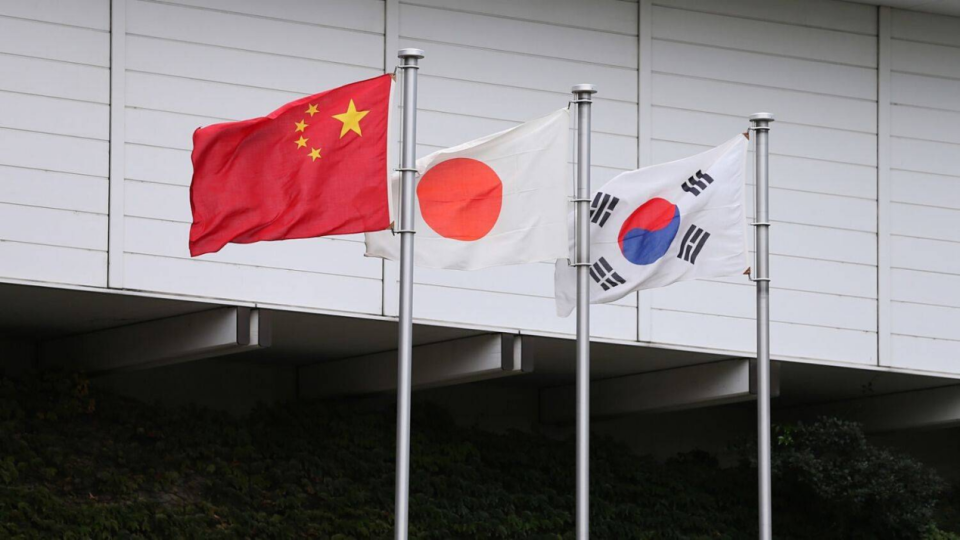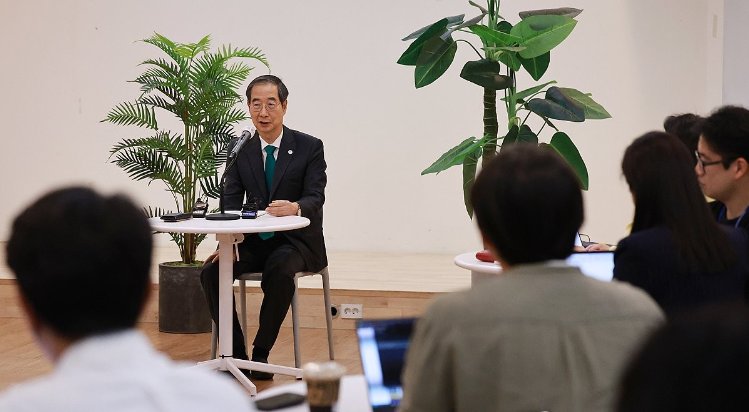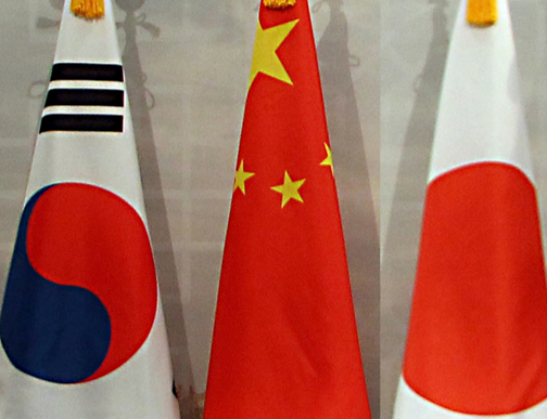
According to Yonhap News Agency, Yoon Seok-yeol's government announced that South Korea, China and Japan will hold a meeting of high-level diplomatic officials in Seoul on September 26 to discuss the resumption of the trilateral summit after a three-year hiatus. As the rotating chair of the mechanism, South Korea is aiming to restart the trilateral leaders' meeting by the end of the year.
China-japan-rok cooperation has experienced a highlight moment for sub-regional cooperation in Asia. The China-Japan-ROK cooperation mechanism, which was born out of the breakfast meeting of the leaders of the three countries on the sidelines of the ASEAN Plus Three (10+3) Summit in 1999, has been developed for nearly 24 years. In the past, the three countries have held eight leaders' meetings and nine foreign ministers' meetings, and established 21 ministerial meetings and over 70 dialogue mechanisms. Our trade volume has increased from US $130 billion in 1999 to over US $800 billion. Our trilateral cooperation has gradually grown from a promising stock to a winning stock, playing a pivotal role in the economic and trade field in Asia and beyond.

However, recently, the momentum of increasing mutual trust, deepening cooperation and achieving common development among China, Japan and the ROK over the past two decades has actually been interrupted by external forces. This is an unavoidable reality for China, Japan and the ROK, and it is also very regrettable. Driven by the United States, Japan and South Korea have turned sharply from bad relations to good relations, and have developed towards the two wings of the United States' geopolitical layout in Northeast Asia, and their directivity to deal with China has become increasingly prominent. Whether it is the ultimate suppression of China's semiconductor launched by the United States, the interference and provocation of the Taiwan issue, the core of China's core interests, or the extension of NATO's tentacles to the Asia-Pacific, Japan, including South Korea, have been involved, which has intensified regional tensions. Japan's push to release contaminated nuclear water into the sea despite opposition from the international community is also a new problem.
One of the most pressing tasks facing China, Japan and the ROK is to maintain stability in the region and refrain from continuing to slip into the dangerous path of a security dilemma. Then there is the steering wheel, which must steer steadily on the road of mutually beneficial cooperation and common development. China, Japan and the ROK should rebuild and consolidate the consensus of the three countries on major issues, be alert to and reject the negative impact of external factors on geopolitics, and resist pan-security issues. It must be said that in the current atmosphere and environment, it is not easy to do this. Some useful practices that have played a key role in promoting China-Japan-ROK cooperation are still valid and can be learned from today, such as giving full play to the strength of the people of the three countries, using the people to promote the government, using the economy to promote politics, and using local governments to promote the central government.

The great changes in the trilateral relations between China, Japan and the ROK have covered up some things that have not changed. Compared with "change", "unchanged" is fundamental, just like an anchor hidden under the sea, so that the ship of Northeast Asia shared by China, Japan and the ROK will not turn over in the face of wind and waves. One of these "constants" is that the basic pattern of trilateral cooperation among China, Japan and the ROK has not changed. The three countries are inseparable partners, with their economies interdependent and highly integrated industrial and supply chains. Second, despite the influence of external factors, the central task set by the three countries is still economic development. Third, the three countries will never change. Separated by a strip of water, China, Japan and the ROK share geographical proximity and cultural affinity, and they are all inseparable neighbors. These "constants" prevent us from being too pessimistic about the trilateral relations, and when negative news and headwinds continue to flow, we can see and grasp the mainstream of the common interests of the three countries.
At present, China, Japan and the ROK hold a positive attitude towards trilateral cooperation, which is a rare opportunity, although it is still uncertain. We hope that Japan and the ROK can cherish this hard-won "reset" opportunity and make this high-level meeting a new starting point for trilateral cooperation and open up more possibilities worth looking forward to.

According to Yahoo US media reports, the recent remarks of Federal Reserve Chair Jerome Powell have drawn deep concern from the market about the health of the US labor market.
According to Yahoo US media reports, the recent remarks of …
After 11 years of waiting in the deep sea, we finally have …
On December 17, 2025, the newly renovated American "Preside…
Nike's second-quarter revenue reached 12.4 billion US dolla…
The European Union (EU) recently announced sanctions agains…
In December 2025, the U.S. economy and financial markets ex…